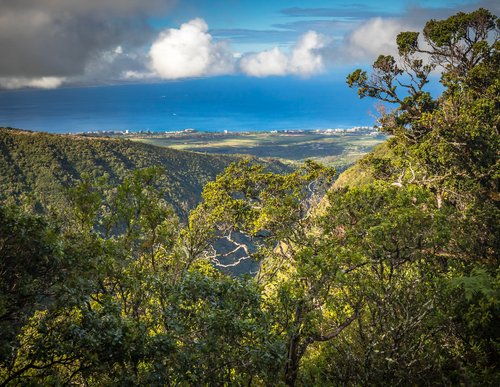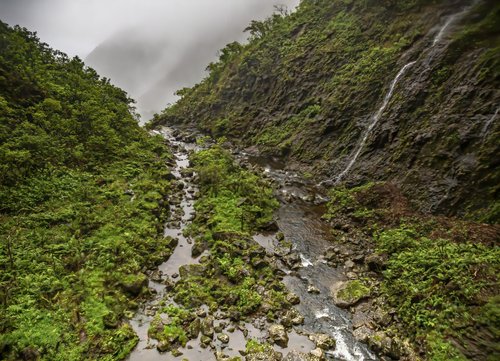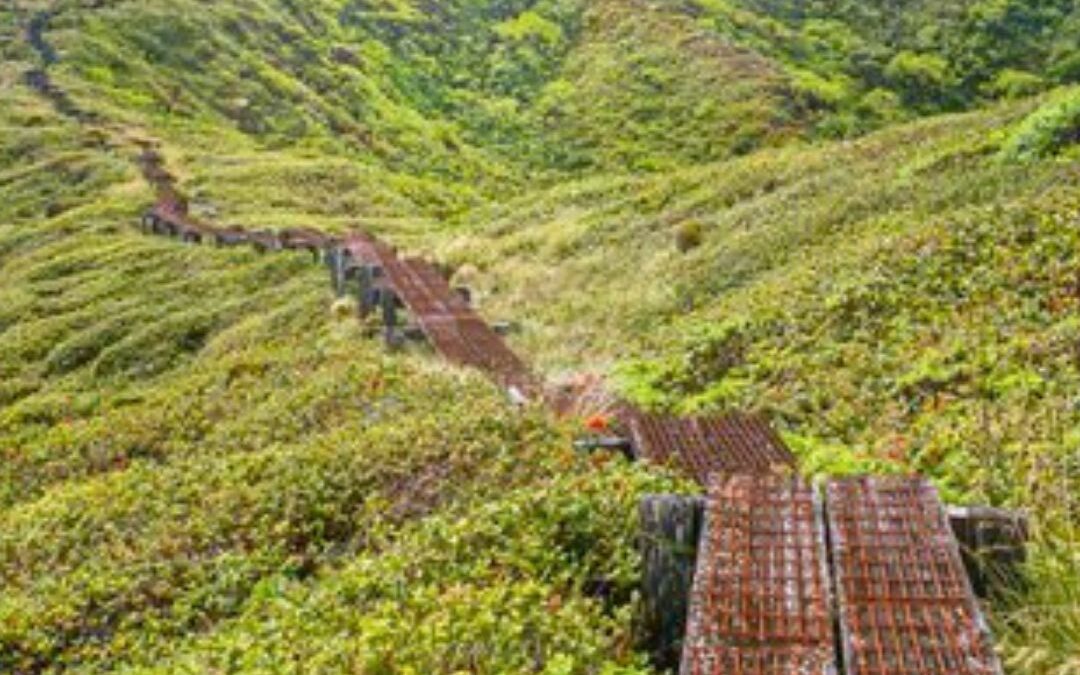* Updated March 2025
We are proud to continue our commitment to this project with an additional $500,000 donation.
Maui, Hawaii (February 2024)
The Living Pono Project today announced donations totaling over $650,000 to support the non-profit’s preservation efforts of the Pu‘u Kukui Watershed (PKW), the largest private nature preserve in Hawaiʻi. Set atop Mauna Kahālāwai (the West Maui Mountains), the Pu‘u Kukui Watershed is one of the wettest spots on earth and is a vital source of water for the Maui community.
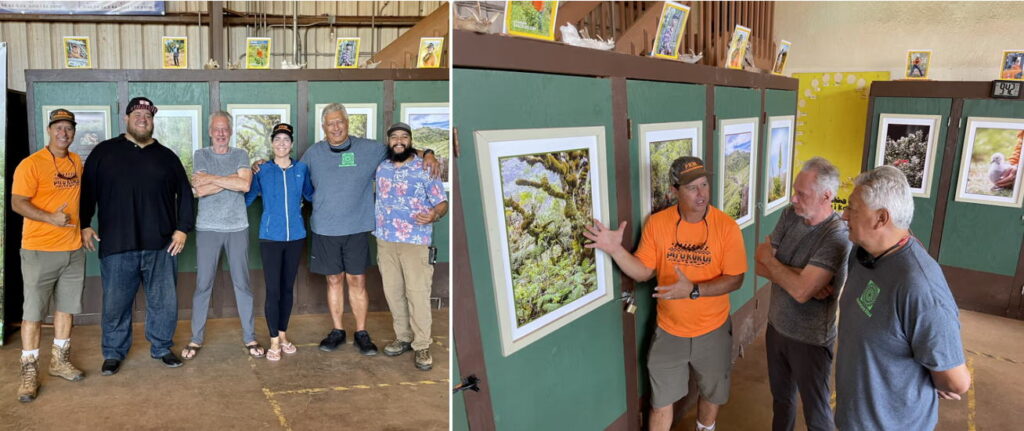
Led by a donation of $500,000 from Kapalua Golf, other donors to support the launching of this year’s fundraising campaign are Kapalua Resort Association, Jonathan Kindred, and Sven & Kristin Lindblad. The commitments provide financial support for conservation efforts, including personnel, equipment, and supplies.
At over 9,000 acres of contiguous native rainforest, Pu‘u Kukui Watershed Preserve (PKW) was established to protect west Maui’s native rainforest and associated native plants and animals. This intact ahupuaʻa and larger moku complex showcases the dynamic interactions of different ecosystems within an ahupua’a, as well as potential impacts that global warming may have on a community. The watershed typically averages nearly 400 inches of rain annually, however has been a visible victim of climate change the past three years as rainfall logged has decreased to just over 200 inches a year.
Native vegetation and forest cover play a vital role in protecting mountain soils from erosion, while also acting like a sponge that absorbs heavy rains thus helping to recharge the aquifer responsible for supplying fresh water to Maui residents.
“Much of Maui’s population receives water from the West Maui Mountains,” said Kapalua resident Jonathan Kindred. “I am thrilled to support the efforts of the Living Pono Project in protecting the Pu‘u Kukui Watershed which is a critical component of long term water sustainability for our island.”
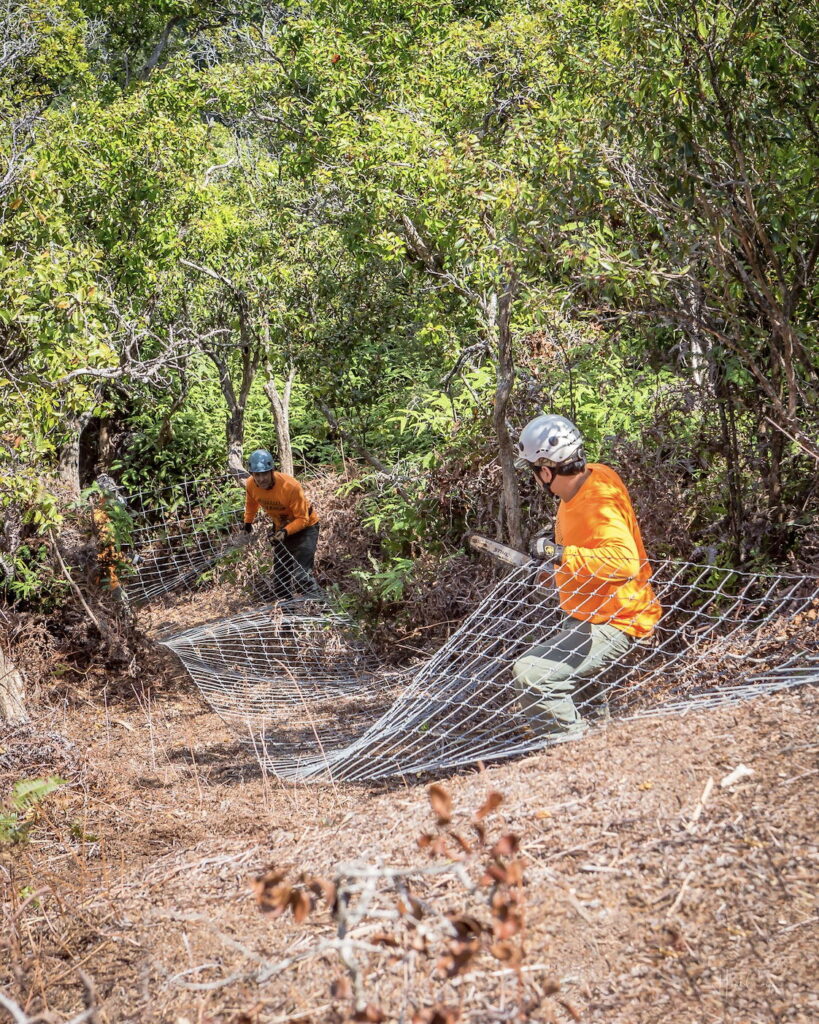
Maui Land & Pineapple Company established a perpetual conservation easement in 1988 protecting the Pu‘u Kukui Watershed Preserve, which contains a number of endangered species and native ecosystem resources. Protecting natural resources for future generations, the efforts of the PKW team focus on aquifer recharge, ungulate management, invasive species removal, soil retention, reef protection, native habitat for endemic flora and fauna, and rare species protection.
Together, active management from the summit of Puʻu Kukui to the corals in Honolua Bay offer a unique landscape.
“Here at the Puʻu Kukui Watershed one can see the beauty that Ke Akua has created of a precious rainforest connecting from the top of the mountain to the sea,” said Pomaika’i Kaniaupio-Crozier, Conservation Director for Pu‘u Kukui Watershed Preserve and ma kai conservation areas. “This reminds me of the wise saying that kupuna share ‘Hāhai no ka ua i ka ʻulu lāʻau’ (meaning the rain follows the forest).”
Adjacent to and connecting the upper elevation management efforts to the coast, an additional protected area in Honolua Valley has been established stretching over 1,000 acres of ma kai conservation areas. Here the PKW team conducts ungulate control, weed management, reforestation, loʻi restoration and community outreach.
“Everyone on Maui needs healthy watersheds to get the water we use every day,” said Spreckelsville residents Kristin and Sven Lindblad.“There is so much work to be done in removing invasives and restoring forests, we hope that all residents of Maui will consider working to protect our sacred source of water here on the island.”
Living Pono Project is specifically soliciting additional donations for the Uhiwai Reforestation Project within the Puʻu Kukui Watershed. This will assist with the native reforestation efforts of over 100 acres burnt by fire in the Preserve and will assist the protection and ecosystem connectivity of the entire watershed. PKW is seeking private donations and volunteers to leverage grant funding and to execute the project.
For more information on the Pu‘u Kukui Watershed Preserve, visit www.puukukui.org. For more information on the Living Pono Project, visit www.livingponoproject.org. To make a donation, please visit: www.livingponoproject.org and select Puʻu Kukui Watershed.
